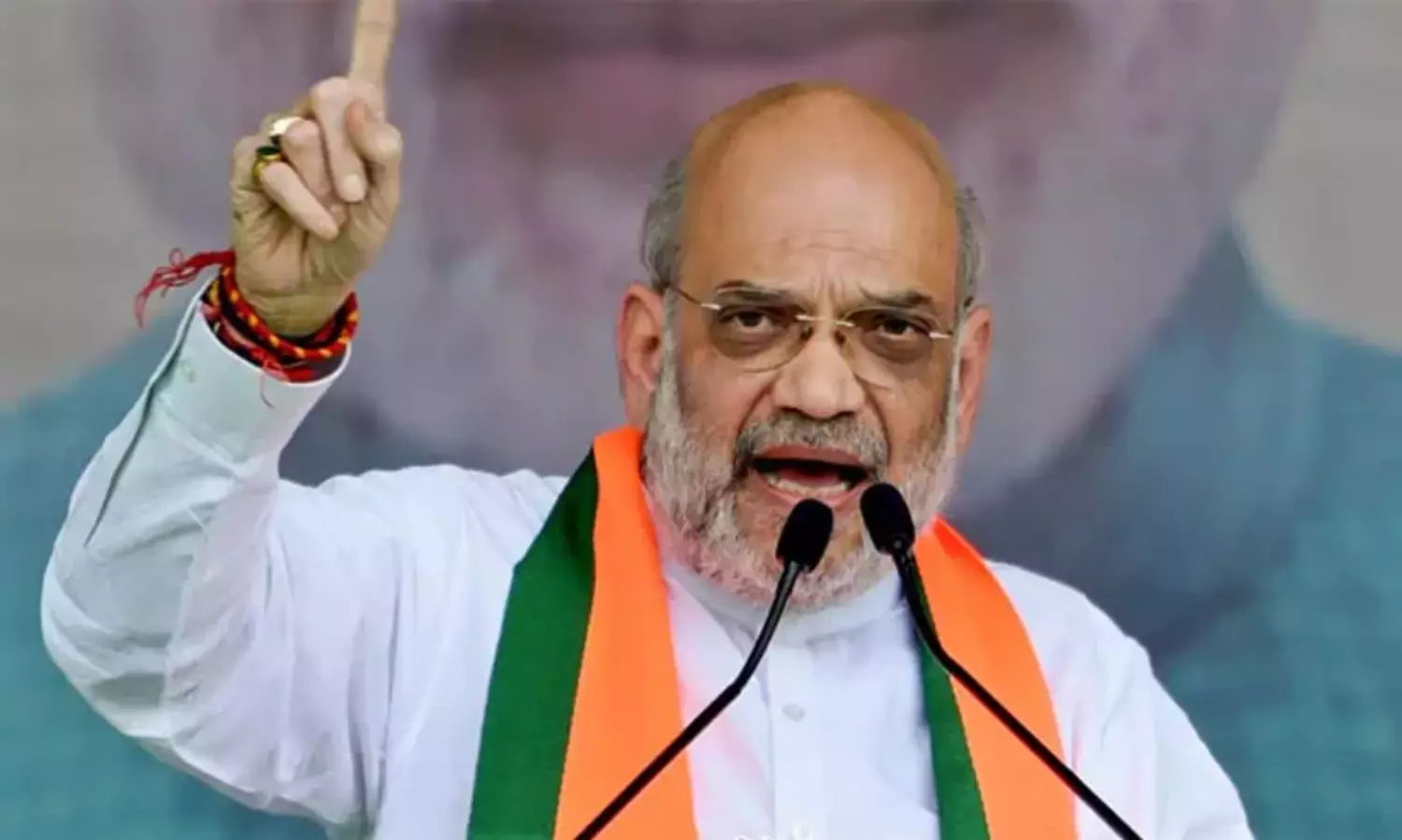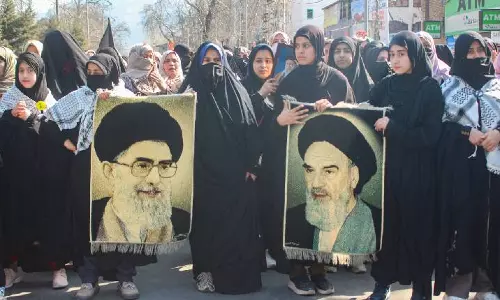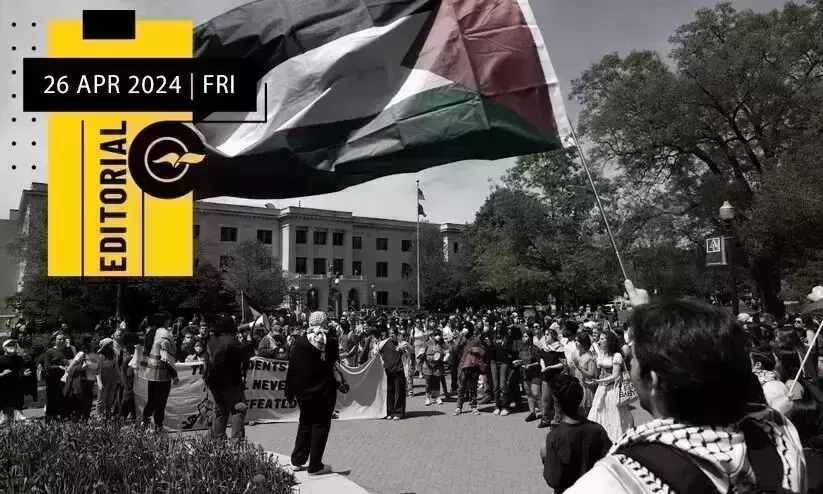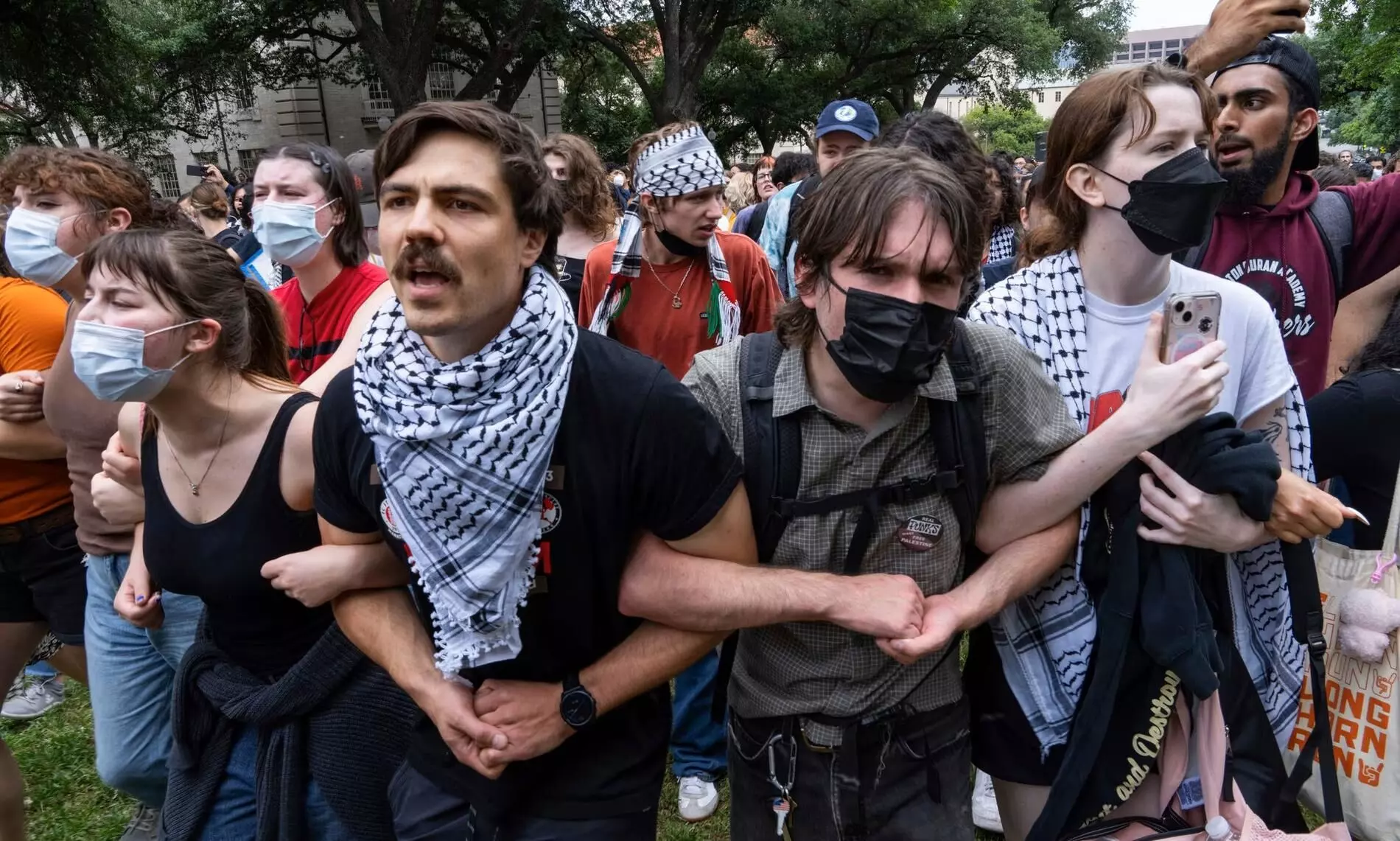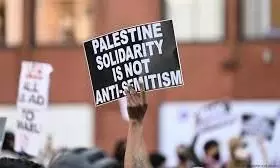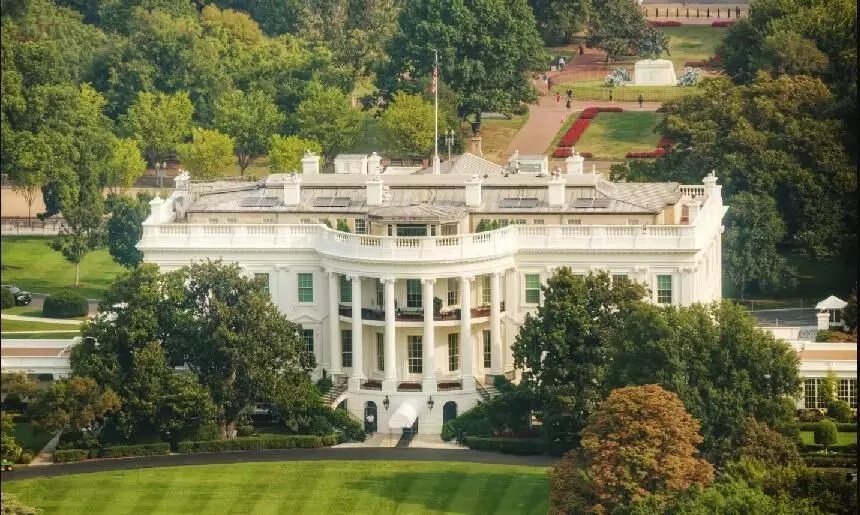
The pro-Palestine protests on American campuses
text_fieldsUniversity campuses in the United States have been on strike for more than a week. After the mass slaughtering of nearly half a million people and burning of the Palestinian land called Gaza, about 80 students of the country's university started a protest against the state of Israel, whose bloodt-hirst continues unabated, and against the United States, which provides it with weapons and means, has shocked the United States and the world alike. Various student organisations are conducting non-violent protests in the form of campus meetings, inter-faith prayer meetings, music programs, etc. Student organisations such as Students for Justice in Palestine and Jewish Voice for Peace are leading this movement of solidarity with the Palestinians. As pro-Israel counter-protests also took place against the protest, there were police interventions in many places. There are also reports that the strike is moving towards conflict. Police arrested hundreds of students at New York and Columbia universities and Barnard College. The strike is also fierce in the universities of California, Yale and Michigan. The protests, which had been peaceful for months, escalated following the police intervention at Columbia University on April 18 and attracted massive international attention. The pro-Palestinian student protest is reminiscent of the tide of protests demanding the withdrawal of troops during the American invasion of Vietnam. The students' demands include a complete ceasefire in Gaza, an immediate end to US aid to Israel, an end to universities' dealings with arms dealers and war profiteers, and the reinstatement of students and faculty members who were expelled or taken action against for protesting. Instead of responding to these demands, the decision of the American government was to deal with the agitation with strong arm methods by labelling it anti-Semitic.
The authorities decided to demolish and remove the tents set up by the protestors on the campuses and to deploy anti-riot police forces to deal with the students in a harsh manner. In the United States, which is supposed to give priority to freedom of expression, the act of drawing the students' peaceful protest into conflict was heavily criticised. Also, new reports show that American resonances are spreading to campuses in West Asia and Europe, where there is a lot of anger towards Israel and the United States on the Palestinian issue. Massive demonstrations in solidarity with American students are also taking place on campuses in Paris, Sydney, and Cairo. Democrats, led by President Biden, and Republicans are competing to label protests against Israel as anti-Semitic. However, Republicans are criticising the Biden administration for not doing enough to protect Jewish students from protesters and for allowing pro-Hamas speech on campuses. Former President Donald Trump and the Republicans are in a race to prove their Zionist allegiance beating Biden, who in fact is complicit in the genocide in Gaza. However, the student-young generation of the campus is going ahead with the agitation, overcoming the pressure tactics and armed resistance of both parties. The world remembers the student uprising in the United States against the Vietnam invasion in the 1970s when the campuses were shaken by the struggle, and the administration proceeded with overt retaliatory measures, including arrests and demolitions. Richard M Nixon won the 1968 presidential election, promising to end the Cambodian occupation. However, two years after taking office, Nixon went ahead with the decision to add a million and a half more young men into the army for occupation. This was after half a million Americans had died in the war. The National Guard was called to the campus to deal with the protest at Kent University in Ohio, and the protest turned bloody, with the use of force turning into gunfire. However, most of the survey agencies that checked the popular support of the strike then found that more people were dissatisfied with the student strike.
However, now the campuses have reached a state of unrest as the public sentiment against the occupation of Palestine is getting stronger in the United States. While raising concerns about unemployment among the youth and the country's economic crisis, the administration, which has no constructive response to it, is making active moves to fill Israel's arsenal. It should also be noted that American universities are also places for the fulfilment of the military needs of the arms tycoons there. That is why such an anti-occupation/anti-war movement is emerging and gaining strength from there. Anti-Israel sentiment and anti-war protests in the country are heating up the atmosphere of protest on campuses. And it is in recognition of this that the administration is determined to douse it. At the same time, America's tall claims about democracy and freedom of expression, though impractical, have created confusion for them in 'handling' the student agitation. In short, the US administration, in a dilemma, cannot abandon Israel because of its Zionist ethnic commitment, nor can it turn a blind eye to the unrest or suppress restless campuses. Yes, occupations one after another are posing challenges for America.




